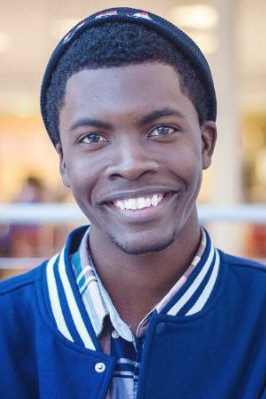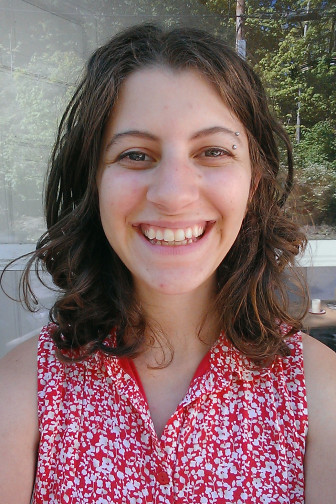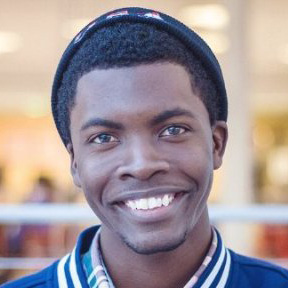Prison education affects all of us. The four of us are students in a course taking place at a maximum-security juvenile facility in upstate New York for young people charged as adults. Two of us are incarcerated there; two of us are college students at SUNY New Paltz. We are all from New York City.
We spent the semester studying core social problems in the United States: racism, sexism and heterosexism. We looked at these social problems through the lens of the education system and criminal justice system. We came together to consider how and why this experience mattered to us.
It was our analysis of these systems of inequality that made us realize that prison education creates an opportunity to resist and transcend the negative consequences of the educational and criminal justice system in all our lives. Social inequalities — distributed by race, class and gender — affect all of us negatively.
However, we collectively recognized that those of us who are not incarcerated had easier access to higher education than those who are. Prison education seeks to eliminate those discrepancies by making a college degree accessible to those individuals most affected by inequalities within the educational and criminal justice systems.
L* (name withheld)
As a resident of the facility, I feel that receiving an education opens up opportunities for individuals like myself who would not otherwise have access to them. Growing up in poverty, I was not given equal access to education. My teachers always had low expectations of me; therefore, I had no one encouraging me to better myself.
Now I am taking college courses while I am incarcerated in this facility’s college education program. With this education, I can go back into society with more opportunities than I previously had, giving me a second chance to make something of myself. When I hear people say things like “Why should my taxes be paying for a prisoner's college tuition?” I want to respond by explaining to them that had it not been for the rundown classrooms and teachers who did not support me, I may not have ended up in the circumstances I am in now. By providing better educational opportunities, we can lower recidivism rates and incarceration altogether.
S* (name withheld)
I can honestly say that education breaks the cycle of poverty. An education provides people with the opportunity to gain knowledge about different topics and ultimately gives them the chance to discover their passion. By receiving the opportunity to have access to an education, I have been able to more critically examine popular culture in order to understand what has value and what does not. Before I was incarcerated, while growing up in an impoverished neighborhood, I witnessed how some people placed high value on material objects as opposed to education.
I used my past experiences as a motivation to be successful in life. My grandmother played an important role in my decision to further my education. Besides my grandmother, no one else in my household has a bachelor’s degree. She valued her education and she wanted to achieve greater things. She is a huge support to my other family members and me, and she has been the sole breadwinner of the family. Without her, I do not know what our family’s situation would have been.
Therefore I cherish the prison education program that has been made available to me. Ultimately, I want to use the knowledge I gain from here to break the cycle of poverty and the hardships my family and I have experienced. I would also like to make my grandmother proud by showing her that an education can change one’s life for the better.
Akeem Samuels
 Throughout my time as a student at SUNY New Paltz, I have experienced how important education is to myself and the students in my classes. I have also witnessed and experienced the joy in social interactions that education creates. By taking a wide range of classes, I was very fortunate to meet a lot of new people, especially those with different perspectives and backgrounds from my own. It is clear to me that prison education programs have helped to facilitate social interactions among people in prison.
Throughout my time as a student at SUNY New Paltz, I have experienced how important education is to myself and the students in my classes. I have also witnessed and experienced the joy in social interactions that education creates. By taking a wide range of classes, I was very fortunate to meet a lot of new people, especially those with different perspectives and backgrounds from my own. It is clear to me that prison education programs have helped to facilitate social interactions among people in prison.
The interactions I have had this semester with my fellow inside students has allowed me to see how discriminatory our criminal justice system is toward people of color. Whenever a person of color commits a crime, our criminal justice system often responds by locking them up, instead of providing resources to correct the underlying issues this population faces.
My experience in the course this semester has taught me a lot about myself, others and the social inequalities experienced within our society. I have also gotten the chance to see how excited many of the inside students are to have the outside students visit their facility; this has reminded me about how beneficial and powerful the experience is for all students. Throughout this experience we are able to socialize with everyone and learn from each other.
By reflecting on how important and beneficial an education is to me, I came to the realization that providing an educational opportunity can be equally important for the inside students. Most of their time is spent locked away behind bars and being isolated from other people who are incarcerated. Therefore, an educational opportunity like the one we have had has shown them that they can make a difference in their lives and that interacting with others is vital to building social skills.
Nikki Goldschein
 As a soon-to-be college graduate of a traditional liberal arts college, I understand what it means to feel like a vital asset. I was always encouraged by my teachers and parents to work hard and stay in school. My work was rarely criticized, unless it was constructively. I found mentors who recognized my strengths and potential, and who continue to advocate on my behalf.
As a soon-to-be college graduate of a traditional liberal arts college, I understand what it means to feel like a vital asset. I was always encouraged by my teachers and parents to work hard and stay in school. My work was rarely criticized, unless it was constructively. I found mentors who recognized my strengths and potential, and who continue to advocate on my behalf.
The learning community I have been fortunate enough to be a part of has allowed me to recognize my own self-worth, and facilitated my ability to see myself as a vital asset. This is an important quality for anyone seeking employment in this economy.
Spending the last four months attending weekly classes at the secure facility, I can confidently say we need to rethink the way in which we view incarcerated young men, and the ways in which we encourage their self-worth. Through conversation and interaction, I have realized that the young men who get to participate in the college program receive support and encouragement that many of their peers do not. It is this validation that drives many of them to stay in the program and allows them to recognize their own self-worth.
Prison education has the power to transform the traditional relationship between society and individuals who have been incarcerated. Rather than continue to perpetuate false stereotypes associated with individuals who have been incarcerated, prison education allows for that cycle to be broken and for many to prove themselves as vital assets to society.
We believe that our criminal justice system should offer more opportunities for incarcerated youths to have equal access to prison education programs. Prison education has the ability to lower the recidivism rate, break the cycle of poverty, facilitate social interactions and create vital assets and role models in our society.
Being students of the Inside/Out course at a secure juvenile facility has benefited us more than we expected and provided an opportunity for us all to learn from each other. In addition, it has given us all a chance to gain different perspectives from each other concerning the social problems experienced within our society.
We all enjoyed taking this course together and we collectively recommend its continuation. It provides a chance to educate those who have the privilege and power of being on the outside to advocate for prison education programs, and for those on the inside to build a collective voice and be their own proponents of change.
L* and S* were among the 10 students serving time in a maximum-security juvenile facility in New York who took the class “Social Problems in a Global World” there. Akeem Samuels and Nikki Goldschein were among the 12 “outside” students from the State University of New York at New Paltz who took the class with them.

Pingback: Media Buzz 5/19/2015 | Education from the Inside Out Coalition |